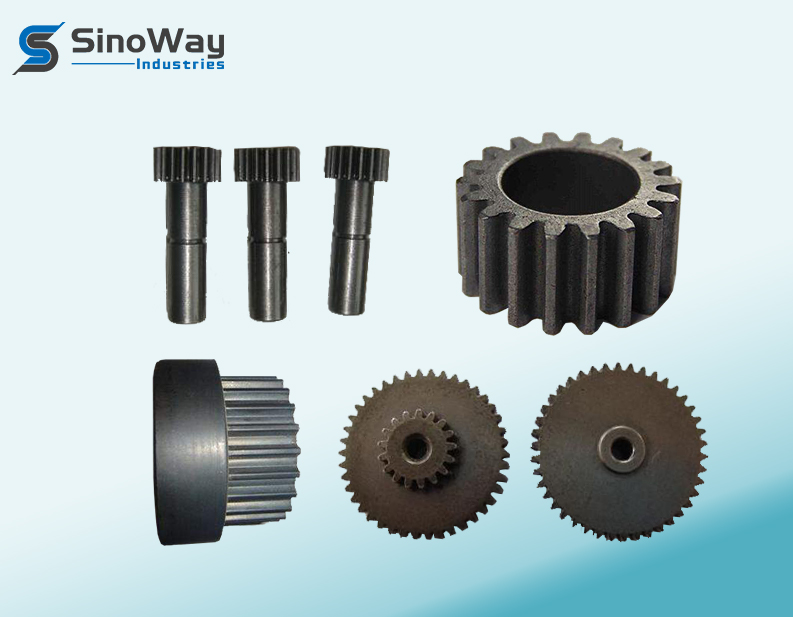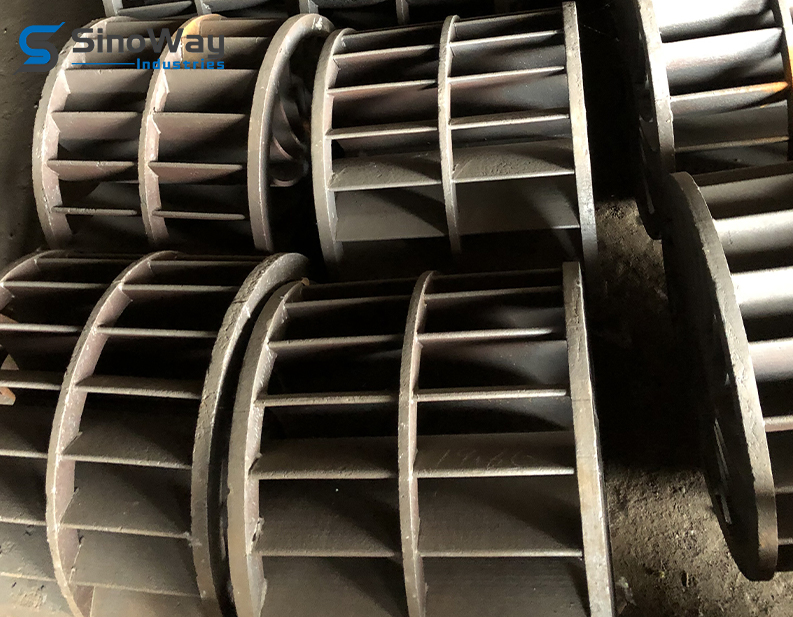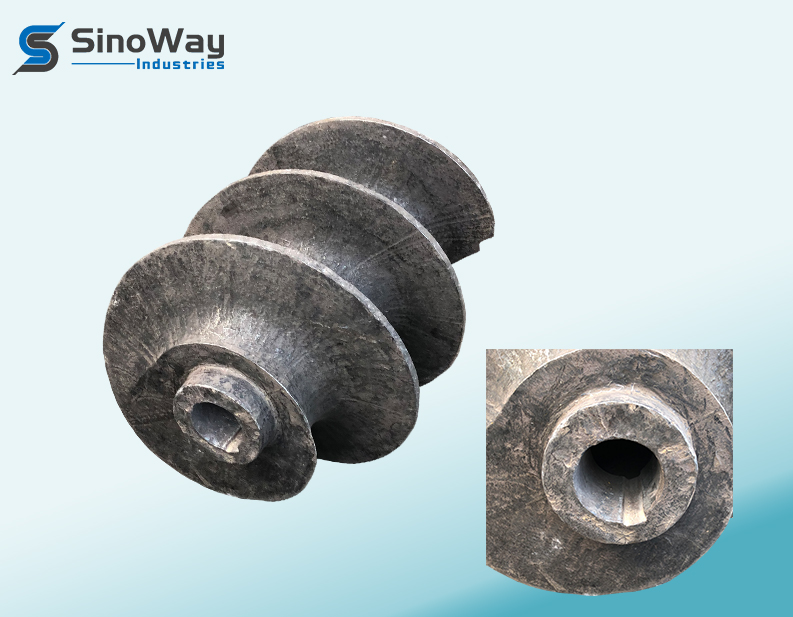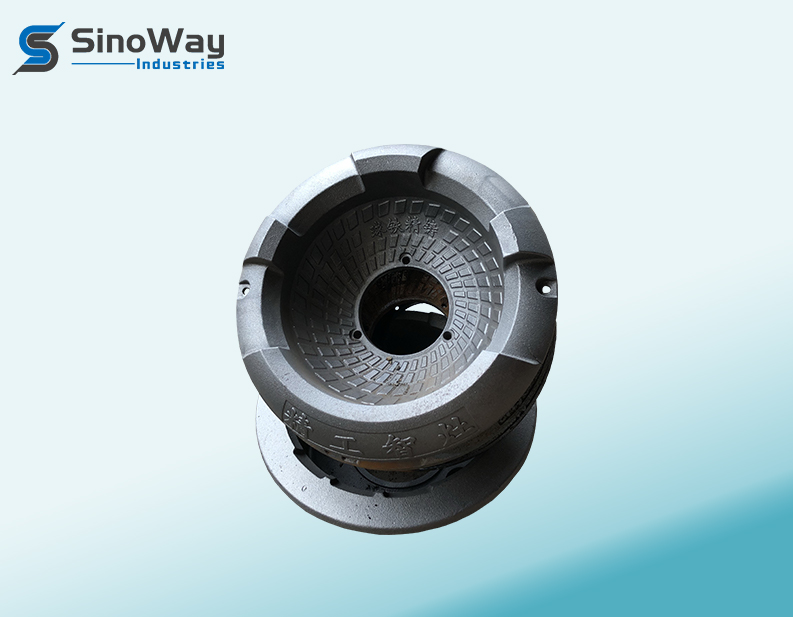In the modern aerospace industry, precision, durability, and lightweight materials are critical for success. Aluminum, with its unique combination of properties, has emerged as a cornerstone material in this sector. The process of large-scale aluminum casting, in particular, has revolutionized the way aerospace components are manufactured. Companies like Sinoway, a leading sheet metal manufacturer, have been at the forefront of this transformation, delivering high-quality aluminum components that meet the rigorous demands of the aerospace industry.
The Role of Aluminum in Aerospace
Aluminum has long been a preferred material in aerospace due to its exceptional properties. It is lightweight, corrosion-resistant, and offers excellent thermal and electrical conductivity. These characteristics make it ideal for manufacturing components that need to withstand extreme conditions while maintaining structural integrity and performance.
metal bending parts
brackets for refrigerators
sand casting truck parts
light truck bumpers
shell mold casting products category
casting oil seals
In aerospace applications, weight reduction is a primary goal. Every kilogram saved in an aircraft can lead to significant fuel savings and reduced emissions. Aluminum alloys, which are often used in casting, provide the perfect balance of strength and weight. Furthermore, aluminum’s recyclability aligns with the industry’s growing emphasis on sustainability.
Why Large-Scale Aluminum Casting is Essential
Large-scale aluminum casting is a manufacturing process that involves pouring molten aluminum into molds to create complex shapes and structures. This method is particularly advantageous for producing large and intricate aerospace components that would be difficult or impossible to fabricate using other techniques.
The aerospace industry demands components with high precision and minimal defects. Large-scale aluminum casting allows manufacturers like Sinoway to achieve these requirements by leveraging advanced technologies such as computer-aided design (CAD) and computer-aided manufacturing (CAM). These tools enable precise control over the casting process, ensuring that the final products meet stringent quality standards.
Advantages of Large-Scale Aluminum Casting
The benefits of large-scale aluminum casting in aerospace manufacturing are numerous:
- Complex Geometries: Casting allows for the production of components with intricate shapes and features, reducing the need for additional machining and assembly.
- Material Efficiency: The casting process minimizes material waste, making it a cost-effective solution for producing large parts.
- Scalability: Large-scale casting can accommodate the production of components in various sizes, from small parts to massive structural elements.
- Consistency: Advanced casting techniques ensure uniformity and repeatability, which are critical for aerospace applications.
Sinoway: A Leader in Aluminum Casting and Sheet Metal Manufacturing
Sinoway has established itself as a trusted partner for the aerospace industry, specializing in aluminum casting and sheet metal manufacturing. With years of experience and a commitment to innovation, Sinoway has developed cutting-edge solutions that address the unique challenges of aerospace manufacturing.
One of Sinoway’s key strengths is its ability to provide end-to-end services, from design and prototyping to production and quality assurance. This comprehensive approach ensures that clients receive components that meet their exact specifications and performance requirements.
State-of-the-Art Facilities
Sinoway’s manufacturing facilities are equipped with the latest technologies for aluminum casting and sheet metal fabrication. The company employs advanced casting methods such as sand casting, die casting, and investment casting, each tailored to specific aerospace applications. These techniques enable Sinoway to produce components with exceptional precision and surface finish.
In addition to casting, Sinoway’s sheet metal manufacturing capabilities include laser cutting, bending, welding, and assembly. This versatility allows the company to offer a wide range of products, from structural components to intricate assemblies.
Commitment to Quality
Quality is a top priority for Sinoway. The company adheres to strict quality control protocols at every stage of the manufacturing process. Advanced inspection tools, such as coordinate measuring machines (CMMs) and non-destructive testing (NDT) equipment, are used to verify the dimensional accuracy and integrity of each component.
Sinoway is also certified to international standards such as ISO 9001 and AS9100, which underscore its commitment to delivering products that meet the highest quality and safety standards.
Applications of Aluminum Casting in Aerospace
Large-scale aluminum casting is used to produce a wide variety of aerospace components, including:
- Engine Components: Aluminum castings are used in the manufacture of engine housings, turbine blades, and heat exchangers.
- Structural Parts: Cast aluminum is employed in the production of fuselage frames, wing spars, and landing gear components.
- Avionics Housings: Lightweight aluminum castings provide protection for sensitive electronic systems while minimizing weight.
- Interior Components: Aluminum castings are used for seat frames, cabin fittings, and other interior elements.
These components play a critical role in ensuring the safety, performance, and efficiency of modern aircraft. By leveraging the capabilities of large-scale aluminum casting, manufacturers like Sinoway can meet the demanding requirements of the aerospace industry.
Future Trends in Aluminum Casting for Aerospace
The aerospace industry is constantly evolving, and aluminum casting technology is keeping pace with these changes. Emerging trends include:
- Advanced Alloys: The development of new aluminum alloys with enhanced properties, such as higher strength and improved heat resistance, is expanding the range of applications for aluminum castings.
- 3D Printing Integration: Additive manufacturing is being integrated with traditional casting processes to create hybrid solutions that combine the best of both worlds.
- Automation: The adoption of robotics and automation in casting facilities is improving efficiency and reducing production costs.
- Sustainability: Efforts to reduce the environmental impact of aluminum casting, such as recycling and energy-efficient processes, are gaining momentum.
Conclusion
Large-scale aluminum casting is a vital technology that powers the aerospace industry. Its ability to produce lightweight, durable, and complex components has made it indispensable for modern aircraft manufacturing. Companies like Sinoway are leading the way, combining expertise, innovation, and a commitment to quality to deliver solutions that meet the industry’s highest standards.
As the aerospace sector continues to grow and evolve, the importance of aluminum casting will only increase. With advancements in materials, processes, and sustainability, the future of aluminum casting in aerospace looks brighter than ever. Sinoway, with its state-of-the-art capabilities and dedication to excellence, is well-positioned to play a key role in this exciting journey.
Whether it’s improving fuel efficiency, enhancing safety, or reducing environmental impact, large-scale aluminum casting is at the heart of the aerospace industry’s progress. By partnering with trusted manufacturers like Sinoway, aerospace companies can achieve their goals and soar to new heights.







